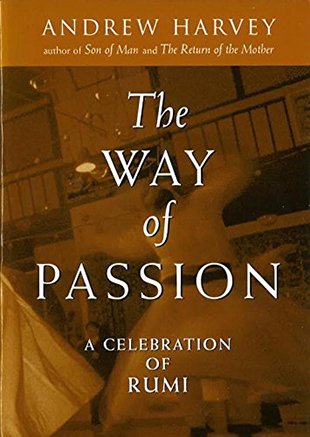"Rumi wasn't just a very great mystic poet — he lived everything out with this supreme beauty, including his dying. Everything in his life was transformed into a supreme poem. The great poets are those like Christ, like Rumi, who make of their lives and their deaths the supreme poem. Rumi has achieved everything that a man can achieve, on every conceivable level. He was a lover, a father, a poet, and he was a universal being whose enlightenment has perfumed the whole world.
"Wasn't it wonderful that Rumi died at sunset. The sun goes down, to rise again. The divine Master leaves his body in the sun, and the sun sets over Konya. So his Beloved was blazing in fire, in red, as he left. That's why when they dance in Konya on Rumi's wedding day, they dance on a carpet the color of the setting sun, the color of blood. If you're a Sufi, you dance in your own blood. Blood becomes sunset, becomes glory, becomes union.
"The least sad place in the world is Rumi's tomb, in Konya. These are some of the last words that we have from him:
" 'When we are dead, seek not our tomb in the earth.
But find it in the hearts of man.'
"That's where you find Rumi, he 's alive at the core of the heart, because he is love itself, eternal love. And the lover never dies."
See our map for A Celebration of Rumi
